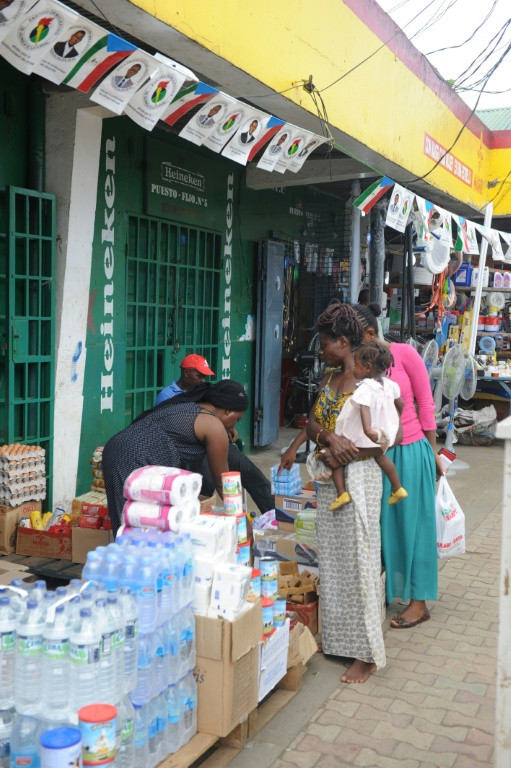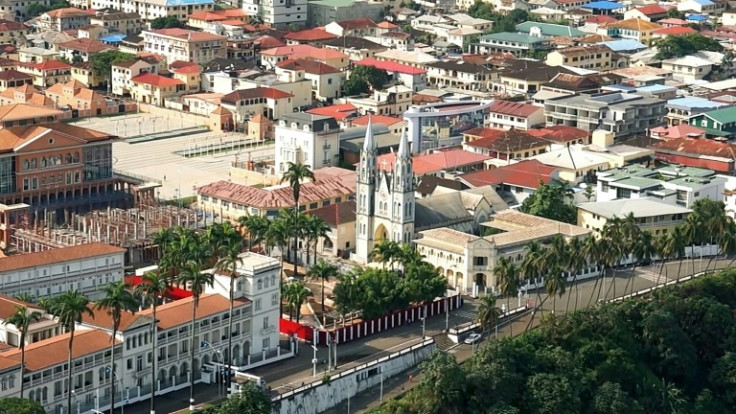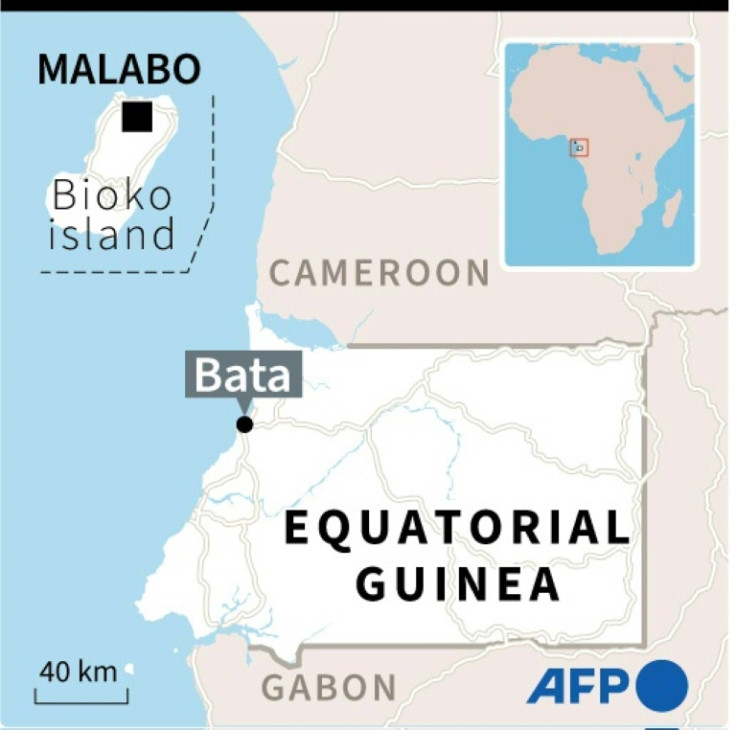Young Equatorial Guineans Yearn For The American Dream

Tiny but oil-rich Equatorial Guinea long escaped the youth exodus plaguing other African nations, but a decade of economic decline and rising unemployment has left many eager to leave.
The discovery of off-shore oil in the mid-1990s turned the country into Africa's third richest in terms of per capita income.
But the economy has been badly hit since oil prices slumped in 2014, putting a dent in government revenues, and slipped into recession last year.
Despite its natural oil wealth, many of the 1.6 million inhabitants live in poverty. The jobless rate has hit 8.5 percent, according to African Development Bank figures.
"I'm going to the United States, regardless of the job, it's not hard to find work," Paciencia Mangue, 32, vowed.
Her economics degree is not enough, she said, and she is fed up with wasting her time.
"To get a good job here, you have to know someone in the government or be related to those who run the country."
Laura Ntogono, a 27-year-old working at a nail salon, said the idea of starting a new life in Los Angeles was never far from her thoughts.
"What you don't find in your country, you can find elsewhere," she said.
The trend is not discussed in the press -- there is no buzz on social media, or official statistics.
However, everyday conversation is full of the subject in the authoritarian, closed West African country, run by 82-year-old President Teodoro Obiang Nguema Mbasogo, the world's longest-serving sitting president.
In recent years, not a day goes by without news of another young Equatorial Guinean leaving for the United States, an AFP reporter said.
A 44-year-old married father of four who asked to be identified only as Manulo, a pseudonym, has lived in Jacksonville, Florida, for about a year after losing his job at the National Institute of Social Security.
"After three years of unemployment, I could not make ends meet anymore... I sold my car and I got a visa," Manulo told AFP from the United States.
He declined to reveal how much he earns, indicating it was on another level to back home.
The minimum wage in Equatorial Guinea is 128,000 CFA francs ($210) a month, according to data from the Economic and Monetary Community of Central Africa.
But his dog-sitting job allows him to send $500 (450 euros) home to his family a month.
Some disenchanted Equatorial Guineans manage to go directly to the United States after getting a visa; others fly to Brazil or Nicaragua, sometimes via Spain, to enter illegally from Mexico.
Based on testimonies heard by AFP, few opt for the Sahel route in order to cross the Mediterranean.
Exile comes with a steep price tag -- 1.6 million CFA francs ($2,620) for a plane ticket from the capital Malabo to San Paulo and a Brazilian visa.
But that still leaves the toughest part -- paying traffickers to get across the US border.
Some can come close to paying with their lives.
Geraldina Adang, 33, said she spent two months on dangerous, illegal routes to travel from Brazil to Mexico early last year.
She then waited three months to cross the Mexican-US border.
"We suffered," said Adang, who now washes dishes in California. "To get into the United States, death is not far."
Celestine Fouenfin, a 36-year-old cleaner from Cameroon who set off from Malabo to reach Las Vegas through Mexico, called her perilous journey an "ordeal" and an "obstacle course".
The dream of leaving for a better life is one shared by many in the continent, a recent poll indicated.
Nearly six out of 10 young Africans are considering leaving their countries within three years to find a job, with the United States their top destination, according to the Ichikowitz Family Foundation survey in 16 countries in Africa.
"With or without a visa, I will reach the United States," said taxi driver Angel Ondo, 25.
"Many of our friends who were taxi drivers like us have already left" via Brazil or Nicaragua, then Mexico, he said, in front of his car.
While Equatorial Guinea saw a wave of political exiles flee to Spain after independence in 1968, the reasons to leave today are wide ranging.
"A lack of individual and collective freedom, a lack of robust, independent institutions, systematic corruption, poor management of public affairs, and a lack of respect for human rights are behind the exodus," said rights activist Joaquin Elo Ayeto from the Somos NGO.
Sociology teacher Elias Mba Engonga blamed "disappointment, lost hope for political changes, social policies and the lack of equitable distribution of state revenue".



© Copyright AFP 2025. All rights reserved.





















